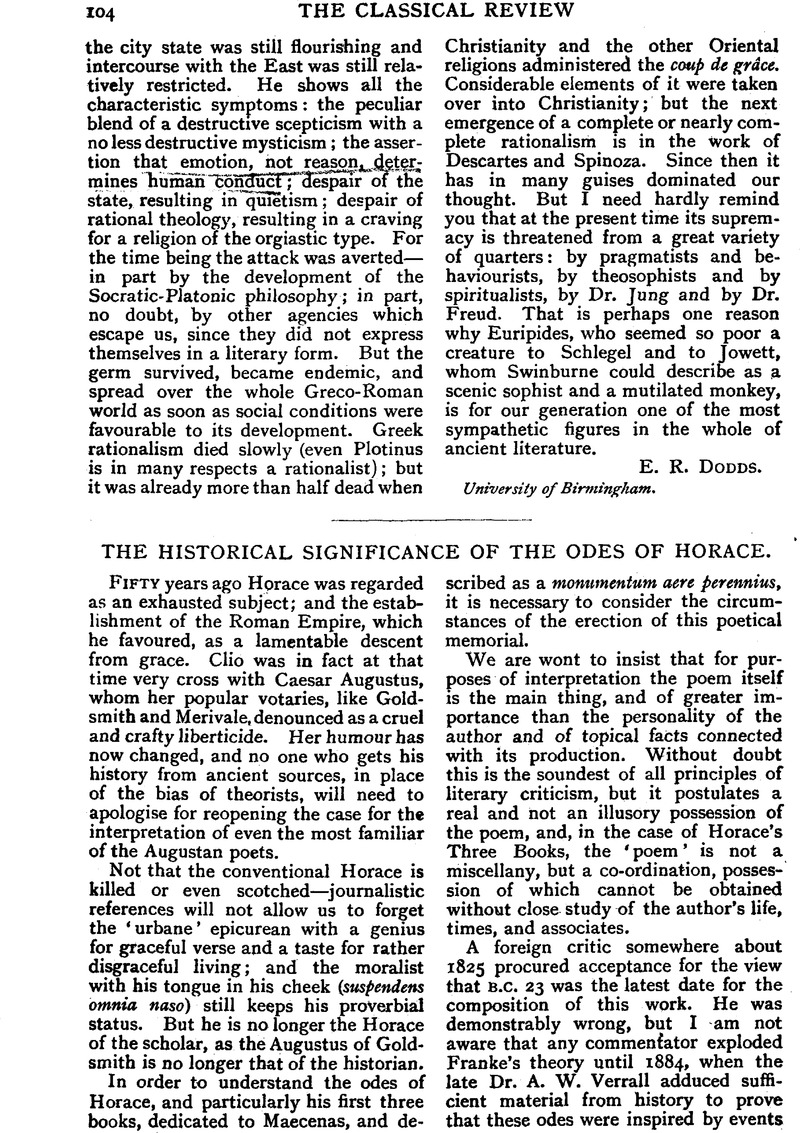No CrossRef data available.
Published online by Cambridge University Press: 27 October 2009

page 106 note 1 Cf. Odes I. 1.; and Ausonius, Id. XX. 7, ‘Signat cuncta manu loquitur Polyhymnia gestu’; also Inscr. Herculan., Πογὑμνια μὑθους; and Ciris, 55, ‘amat P. verum.’
page 107 note 1 The references of the ancient historians, etc., to the plight of Maecenas were collected for an address to the Oxford Philological Society in 1908, and have been published in the Sewanee (U.S.A.) Review for April-June, 1924, vol. xxxii., No. 2, under the title The Fall of Maecenas.
page 107 note 2 Proculeius committed suicide by taking poison; the date is unknown. See Pliny, N.H. 35. 59. His fatherly love was ill requited, according to Quintilian—see Inst. 9. 3. 68—but apparently, so far as he knew, by a son.
page 107 note 3 See the present writer's Translation and Exposition of the Odes, Introd., § 96 ff.
page 111 note 1 Cf. the writer's Student's Edition of the Odes, pp. 275, 280.
page 111 note 2 Cf. Persius, Sat. I. 116, discussed in the writer's Translation and Exposition of the Odes, p. 228.